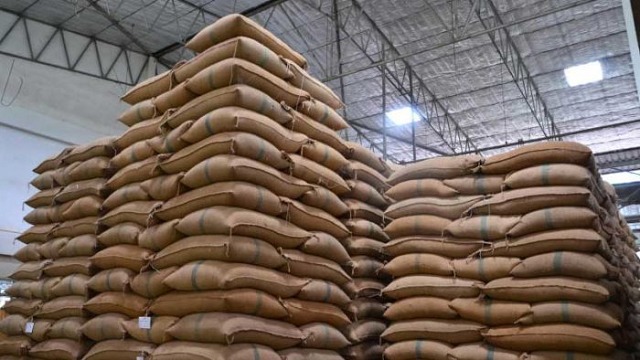Rice consumers in Nigeria should check rice bags for expiry date as they may have turned toxic, unfit for human consumption.
In Kenya, a staggering one million bags of toxic rice, along with 400 containers of substandard cooking oil, have been impounded by detectives.
The rice bags and the cooking oil were seized in the port city of Mombasa. The rice was past the expiry date by three years.
A team of detectives working on a report compiled by Kenya Association of Manufacturers (KAM) and government agencies, including National Intelligence Service (NIS), seized the goods last month.
According to the Directorate of Criminal Investigations (DCI), the rice, originally from Pakistan, had been condemned as unfit for human consumption but somehow found its way into Kenya.
In addition, the Kenya Bureau of Standards (Kebs) refused to clear more than 400 containers of 20kg jerricans of cooking oil from Malaysia.
Director of Criminal Investigations George Kinoti said rogue importers were printing new bags that were transported to the high seas and used to repackage the contaminated rice.
“Yes, it’s true we have impounded about one million bags of rice stored in some warehouses in Mombasa. We believe some of the toxic rice may have been sneaked into the market,” Mr Kinoti said.
The DCI said the cartel, working with customs officials, facilitated entry of the contraband rice.
“They print new bags with fresh expiry dates then repackage the rice ready for entry through the port. Some of the rice had been condemned about three years ago as unfit for human consumption,” he added.
The Palm Oil Refiners Association of Malaysia (Poram) has already petitioned its government to intervene and have the oil shipped back to Malaysia.
Poram Chief Executive Officer Teoh Beng Chuan said the oil was impounded as it did not have 20mg/kg of vitamin A as required.
“We have further been informed that the exporters’ request to take ownership of the cargo and re-ship it to another destination has also been denied. Meanwhile, the containers continue to remain in the port yard incurring additional storage charges beyond the 14 days free period allowed,” Mr Chuan said.
The letter to Malaysia’s Deputy Secretary General (Trade), Ministry of International Trade and Industry adds: “We therefore seek your kind assistance to have Kenyan authorities to resolve this impasse urgently as it affects the image of Malaysian palm oil industry in addition to the cost involved if its further delayed.”
*This story was originally published by standardmedia.co.ke













